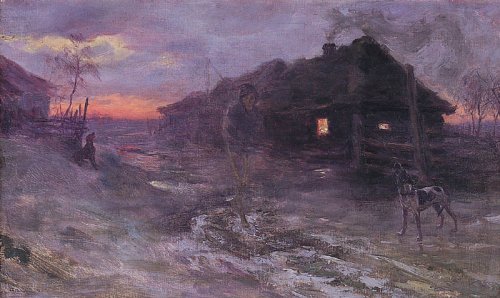
In September 1749, Arthur Davis, a sergeant in the British army, went missing while shooting in the Highlands of Scotland. A search found no trace of him, but at length his landlord’s son, Alexander Macpherson, announced that Davis’ ghost had roused him from bed, told him the location of the body, asked him to bury it, and named his murderers.
At trial, this astounding testimony was corroborated by a servant who had seen the ghost enter Macpherson’s house and approach his bed:
She saw something naked come in at the door; which frighted her so much that she drew the clothes over her head: that when it appeared, it came in a bowing posture; that she cannot tell what it was; that next morning she asked Macpherson what it was that had troubled them the night before? and that he answered, she might be easy, for it would not trouble her any more.
This ghostly evidence seemed to be swaying the jury until the defense attorney asked a fateful question: “What language did the ghost speak in?” When the youth answered, “As good Gaelic as I ever heard in Lochaber,” the jury found the accused murderers not guilty. A ghost’s testimony might be reasonable — but Arthur Davis had never learned Gaelic.
